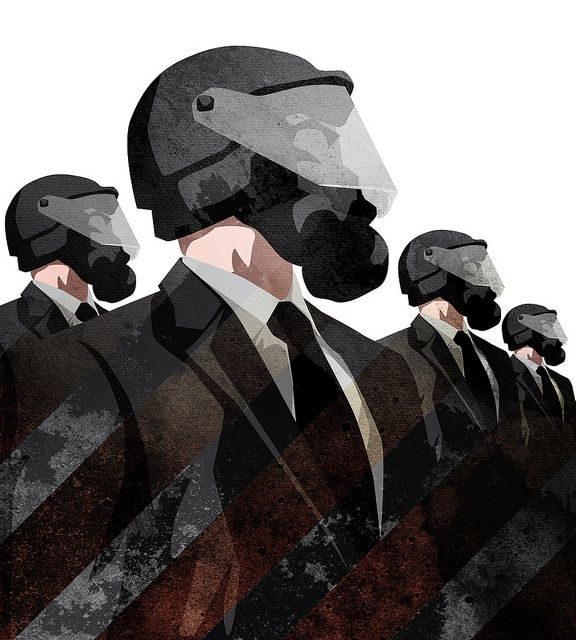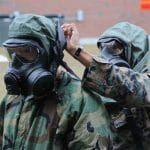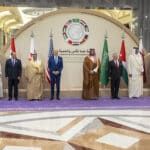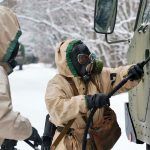Why the OPCW should attribute responsibility for chemical attacks
By John R. Walker | June 21, 2018

On June 20, the Bulletin published an article by Oliver Meier and Ralf Trapp about a UK initiative to task the Organisation for the Prohibition of Chemical Weapons (OPCW) with attributing responsibility for chemical weapon attacks. I have known both authors personally for many years, and while I have usually found myself in total agreement with what they have written on efforts to control chemical and biological weapons, on this occasion I must, regretfully, disagree profoundly with their argument. I will confine myself to four main observations.
First, dealing effectively with noncompliance is always the hardest challenge for any arms control and disarmament treaty. The bitter arguments in The Hague and New York over chemical weapon use in Syria make this clear. The Technical Secretariat of the OPCW can certainly provide the facts, but it is for the OPCW’s Executive Council and ultimately the Conference of States Parties to respond to those facts and determine what action is required. An ability to attribute responsibility for noncompliance is inherent in the powers set forth in Articles VIII, IX, and XII of the Chemical Weapons Convention (CWC). Indeed, the section of the Verification Annex that outlines procedures for investigation of alleged use is explicit. It notes that if an “inspection team collects through, inter alia, identification of any impurities or other substances during laboratory analysis of samples taken, any information in the course of its investigation that might serve to identify the origin of any chemical weapons used, that information shall be included in the report.”
Second, the authors confuse attribution with accountability; the two are very different. The draft UK decision only addresses attribution—accountability follows subsequently in the Executive Council, the Conference of States Parties, in the UN Security Council or in separate international legal proceedings.
Third, Meier and Trapp are worried that the UK draft decision could lead to possible damage to the OPCW and to the Convention itself. The obverse is true. Doing nothing is much more of an existential threat. The CWC and the OPCW itself face a real risk to their current and long-term credibility and integrity if they fail to respond effectively and expeditiously to the persistent use of chemical weapons in four countries over the last two years: Syria, Iraq, Malaysia, and the United Kingdom. The Executive Council has been unable to act—the politicization and polarization of views within that body are already evident. It is important now for the entire membership of the CWC to stand up and grasp the issue; hence the role for a special session of the Conference. Moreover, this is precisely the role envisioned for the Conference when the CWC was negotiated in the 1980s and early 1990s.
Fourth, this is not about taking sides or reacting to any specific incident. This is a collective effort to protect a vital global norm. That norm is under threat, which endangers everyone’s security. It is about sustaining the rules-based international system. In agreeing to the Conference, the international community has committed to come together to discuss this issue—more than 90 states parties have agreed to the request to call a Special Session of the Conference, and a steadily growing number of states parties from all regions are ready to support the United Kingdom’s draft decision. This decision seeks to:
- Condemn unequivocally chemical weapon attacks wherever they take place.
- Express strong backing for the OPCW to continue its vital work.
- Agree to establish immediately arrangements to attribute responsibility for chemical weapon attacks in Syria.
- Call for greater action to support states to address the chemical terrorist threat.
- Mandate the director-general to develop other proposals to further enhance the OPCW’s capabilities on verification and to support states in implementing the CWC; such proposals would be decided upon at the regular annual Conference in November. (Ways and means of enhancing the OPCW’s capabilities on verification can be derived from many of the recommendations in the OPCW Scientific Advisory Board’s report on developments in science and technology, prepared for the Fourth Review Conference.)
In conclusion, I would certainly agree with Meier and Trapp’s comment that only when the international community as a whole backs multilateral monitoring mechanisms can such mechanisms fulfill their important but at times controversial and dangerous tasks. However, for such a situation to emerge, the UK draft decision must be adopted at next week’s conference.
Together, we make the world safer.
The Bulletin elevates expert voices above the noise. But as an independent nonprofit organization, our operations depend on the support of readers like you. Help us continue to deliver quality journalism that holds leaders accountable. Your support of our work at any level is important. In return, we promise our coverage will be understandable, influential, vigilant, solution-oriented, and fair-minded. Together we can make a difference.
Keywords: OPCW, Organisation for the Prohibition of Chemical Weapons
Topics: Chemical Weapons














